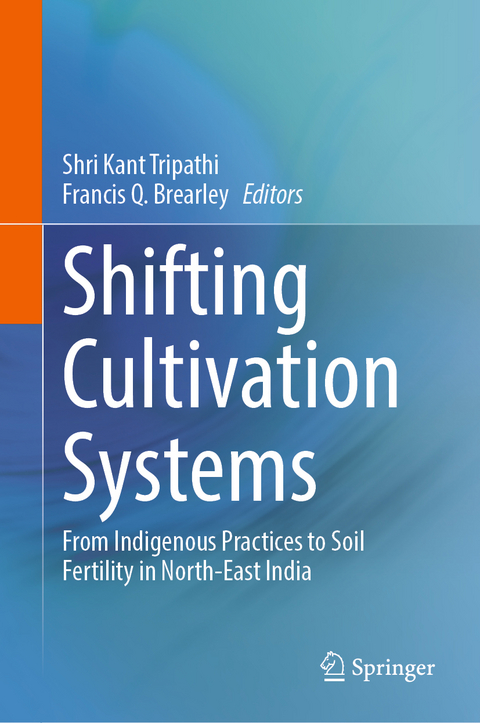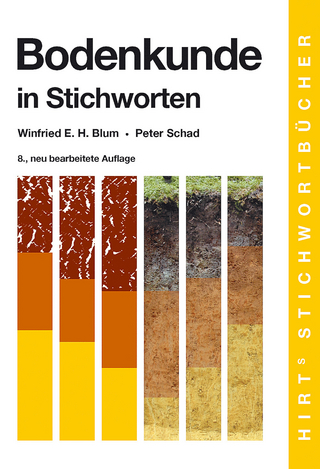
Shifting Cultivation Systems
Springer International Publishing (Verlag)
978-3-031-70387-4 (ISBN)
- Noch nicht erschienen - erscheint am 13.01.2025
- Versandkostenfrei innerhalb Deutschlands
- Auch auf Rechnung
- Verfügbarkeit in der Filiale vor Ort prüfen
- Artikel merken
This book discusses indigenous practices and obstacles faced by farmers conducting shifting cultivation (jhum) in North-east India and suggests methods of soil fertility improvement through e.g. microbial-mediated rejuvenation of forest fallows as a sustainable approach for mitigating deteriorating jhum lands and enhancing their productivity. Shifting cultivation has experienced a decline in crop productivity due to high population density and shortened fallow length that has impacted upon farmers' socio-economic status, and raised concerns regarding food security and environmental conservation. As shifting cultivation is conducted in moist tropical forests globally supporting millions of people, there is the potential to benefit many populations. This book is suitable for researchers, policy makers, development agencies, NGOs and farmers to formulate strategies that conserve the biodiversity, environment, soil health and traditions of tribal farming communities.
Professor Shri Kant Tripathi is an ecologist with over 30 years of research experience. He received Master's and Ph.D. in Botany from Kumaun University and Banaras Hindu University, respectively. Presently, he is working in the Department of Forestry at Mizoram University, and has mentored over 17 doctoral and four post-doctoral researchers. He has edited three books and published over 180 research papers/chapters with over 3500 citations. He has visited many countries abroad like UK (1994, 2016), USA (1995, 2005), Nepal (1997), Japan (2002, 2003, 2004), China (2008), Germany (2009), Italy (2017), and France (2019) for short-term and long-term academic activities. He was given the National Award for Excellence in Forestry Research by the Indian Council of Forestry Research and Education, Dehradun in 2020, and was elected Fellow of Indian Ecological Society in 2023. Prof. Tripathi has been collaborating with ecologists within India and abroad on his research in terrestrial ecosystem ecology including aspects of biodiversity change, biogeochemistry, ecosystem carbon sequestration, plant-soil-microbe interactions, ecosystem sustainability at different spatio-temporal scales, and management regimes under changing environments.
Dr Francis Q. Brearley is an ecologist with key research interests in tropical plant-soil interactions and their importance for ecosystem processes. He received his Ph.D. from the University of Sheffield in 2003 and, after short-term appointments at British Antarctic Survey, University of Cambridge and Trinity College, Dublin, joined Manchester Metropolitan University in 2007 and was promoted to Reader in 2022. He has published over 120 papers/chapters and edited one previous book on the impacts of land-use change on soil processes. His work has been supported by various funding agencies including the British Council, Centre National de la Recherche Scientifique, the Natural Environment Research Council, and the Royal Society for work in numerous countries including French Guiana, India, Indonesia, Malaysia and Pakistan where he works productively with international collaborators.
Introduction to Shifting Cultivation Systems in North-east India: From Indigenous Practices to Soil Fertility.- Festivals and Ceremonies Tie-up with Shifting Cultivation Among the Ao-Nagas of Nagaland.- Innovative Shifting Cultivation and Other Agricultural Practices Conducted by the Indigenous Population of Mizoram, North-east India.- Innovative Indigenous Technologies for Sustainable Mountain Farming Systems in North-east India.- Agrobiodiversity and Crop Productivity of Alder-based jhum Farming System in Khonoma Village, Nagaland, India.- Linking Soil Organic Carbon and Soil Parameters in Shifting Cultivation Sites of Nagaland (North-east India).- Recovery of Soil Organic Carbon During Forest Fallow Following Shifting Cultivation in Eastern Ghats and North-eastern Hill Region of India.- Differences in Soil Carbon and Nitrogen Across Contrasting Land-use Systems in a Sub-tropical Hilly Region, North-east India.- Ethnopedological Knowledge of jhumias in Garo Hills, Meghalaya, to Assess Soil Nutrients and Health.- Agronomic Aspects of Nutrient Management in Shifting Cultivation Agro-ecosystems of North-east India.- Shifting Cultivation to Settled Agriculture for Sustaining Soil Health and Agriculture Productivity in North-east India.- Changes in Bacterial Community Structure and Nitrogen Cycling Gene Abundance During the Fallow Recovery Phase of Shifting Cultivation in North-east India.- Screening of Rhizosphere Actinomycetes from Shifting Cultivation Crops for Pigment Production.- Sustaining Shifting Agricultural Practices in North-east India Through Beneficial Soil Microbes.- Systematic Review on Shifting Cultivation in North-east India: Emerging Research Directions.- Management of Soil Fertility and Crop Productivity under Shifting Agriculture in Mizoram, North-east India: Ways Forward.
| Erscheint lt. Verlag | 13.1.2025 |
|---|---|
| Zusatzinfo | VI, 230 p. 44 illus., 41 illus. in color. |
| Verlagsort | Cham |
| Sprache | englisch |
| Maße | 155 x 235 mm |
| Themenwelt | Naturwissenschaften ► Geowissenschaften ► Geologie |
| Schlagworte | Indigenous knowledge • rhizosphere microbes • Shifting Culivation • Soil fertility • Swidden |
| ISBN-10 | 3-031-70387-1 / 3031703871 |
| ISBN-13 | 978-3-031-70387-4 / 9783031703874 |
| Zustand | Neuware |
| Haben Sie eine Frage zum Produkt? |
aus dem Bereich


